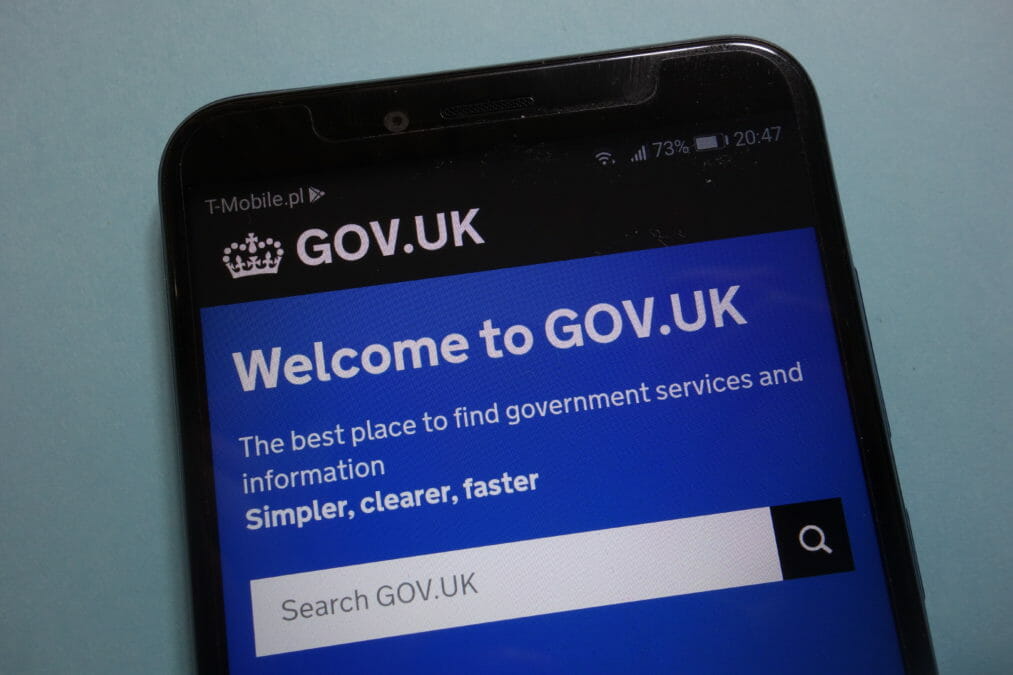The impact of the Coronavirus pandemic has accelerated digital transformation strategies for many organisations, and governments are no exception. Investing in technical innovation to keep up with the changing needs of constituents and to deliver ever more seamless services has long been on the agenda. Today, though, it has become a priority. Despite this, however, many are a long way from the necessary degree of government digitisation.
The current state of play
Launched in September 2020, the UK Government’s National Data Strategy outlines plans to improve the use of data in helping the country through the current crisis and beyond, describing it as being “a lifeline” during the pandemic. The strategy’s stated aim is to improve the use of data in government, and to “free up businesses and organisations to keep using data to innovate, experiment and drive a new era of growth”. To this end, it includes a programme designed to transform the way data is managed, used, and shared – both internally, and with citizens and third-party organisations.
While the aims of the strategy are admirable, according to research, a large gap exists between the government’s objectives and the extent to which data is actually being used. In fact, the research reveals that only 11% of local authorities have so far digitised all of their citizen records, for example, and more than a quarter (27%) of UK citizens are still unable to access their own medical records online, which is particularly concerning given the current health crisis.
As with the private sector, central government and local authorities have found themselves having to manage the mass transition to remote working necessitated by lockdown measures. At the same time, they’re required to protect citizens and keep them informed on all things Covid. Government organisations must therefore consider how to improve collaboration with other relevant bodies throughout the system. Only then can they better utilise the data they have available, sharing it faster and more easily with colleagues, with third-parties, and with UK citizens.
The hidden procurement hurdles between us and successful UK vaccination
Change of focus
In addition to the technical – and technological – complexities they face, governments must also manage growing budget pressures and meet rising expectations of the services they deliver to citizens. Citizens live in an increasingly digital world, in which they expect accessibility and an optimised user experience on any channel, via any device, at any time. Catering to these expectations therefore requires governments to deliver services around the clock, on a range of channels – whether online, mobile, or self-service.
But, as most local authorities still rely on legacy systems, there’s little chance of ever meeting these expectations. Integrating data analytics and automation could prove hugely advantageous for the public sector, supporting both internal and external communication needs. Without the necessary infrastructure in place to support them, though, these initiatives would yield limited success.
Continuing to devote energy and resources on maintaining out-of-date legacy systems leaves little time for government organisations to concentrate on building the culture of innovation needed to encourage long-term growth and development. They should instead look for ways to modernise their infrastructure and build their digital transformation strategy from the ground up. Ultimately, technology should be seen as a valuable source of long-lasting innovation rather than a financial burden.
5G, behavioural analytics and cyber security: the biggest tech considerations for businesses in 2021
Uncertainty and opportunity
For citizens to interact seamlessly with government services requires more effective management of back-office workflow, data capture, and analytical capabilities. A content service platform can make a big difference here. Stretching across different departments, and with solutions for capturing and digitising information, such a platform will provide staff, citizens, and third-parties with a single point of access to all relevant information and documentation. In fact, most digital platforms can integrate with an organisation’s portals, or quickly create their own access points if needed, to provide third parties with secure access to the information they need, no matter where they’re based.
As the UK begins its recovery from the effects of Covid-19, these self-service capabilities will become especially important, particularly for improving the quality of services while continuing to keep costs low. Whilst it’s encouraging that 40% of local authorities have now digitised most (76–99%) of the information they hold on local citizens, it’s clear that government organisations need to do more to when it comes to embracing the digital world.
The disruption over the past year has highlighted the importance to public health and services, and the requirement for governments to update obsolete legacy systems. But there are opportunities amongst this uncertainty. If the public sector renews its focus on delivering its digital transformation strategies now, it will be far better equipped to meet future challenges. Ultimately, rethinking their approach to digitalisation will enable local authorities to deliver seamless citizen experiences, and achieve the improvements and innovation laid out in the Government’s National Data Strategy.








